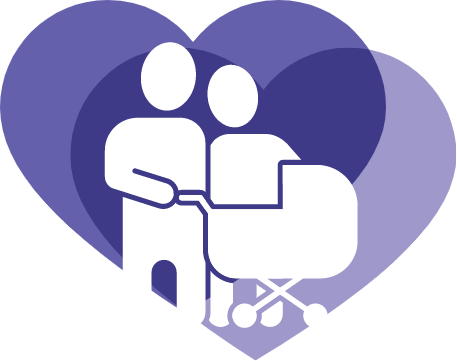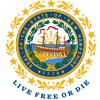Healthcare Providers
Healthcare providers play an important role in the New Hampshire Paid Family and Medical Leave claim process.

What You Need To Know
NH Paid Family and Medical Leave (NH PFML) is a voluntary insurance plan that provides NH workers with up to 60% wage replacement for up to 6 weeks per year for absences from work due to the following qualifying life events:
- To care for one’s own serious health condition(s) when disability coverage doesn’t apply, including childbirth
- To bond with a child due to birth, adoption or fostering
- To care for a family member with a serious health condition(s)
- To care for a qualifying military service member
- To participate in a qualifying event arising from military deployment or service
Your Role
MetLife is the State of NH’s insurance partner to provide NH PFML insurance to NH employers and workers. When a worker makes a claim for NH PFML benefits, MetLife will ask you to provide proof of a qualifying event. As a healthcare provider, you may be asked to provide documentation to serve as this proof for your patient or their family member’s condition.
Certification of a Serious Health Condition
NH PFML benefits under the insurance plan can extend for long durations (6 weeks or 12 weeks) and therefore, prior to making a claim decision, MetLife or the worker seeking NH PFML benefits will ask for proof to confirm the qualifying reason and the length of time a worker needs to be away from work.
Although it is the worker’s responsibility to obtain proof in support of their NH PFML claim, you will be asked to complete a NH PFML Serious Health Condition Certification form that MetLife will rely on to approve or deny worker applications for NH PFML insurance benefits. MetLife may accept an FMLA certification form if it clearly states the serious health condition and the need to take benefits on a continuous basis, on a partial work schedule or on an intermittent leave schedule (asking for leave benefits in increments of at least 4 hours per workday)
NH PFML Serious Health Condition Certification forms should be returned to MetLife by mail, fax or by uploading to the MetLife portal as soon as possible.
- Mail a form to: Metropolitan Life Insurance Company P.O. Box 14590 Lexington, KY 40512-4590
- Fax a form to: 1-800-230-9531
- Submit a form via Metlife’s MyBenefits web portal

Proof or Documentation to Support a Claim
Patients who are eligible for NH PFML will need to show documentation when they submit a claim for benefits. You may need to help them with the forms or documents they need for these covered events:
- Own or Family Member’s Serious Health Condition
- Child Bonding
- Care for a Service Member
For one’s own serious health condition:
- NH PFML Serious Health Condition Certification form filled out by the claimant and their healthcare provider, which includes various information regarding a worker’s condition or
- A doctor’s note or Attending Physician Statement (APS) that includes the same information as the Certification of Serious Health Condition form
To care for a family member with a serious health condition, including medical events related to pregnancy or childbirth, the claimant must provide ONE of the following:
- NH PFML Serious Health Condition Certification form filled out by the claimant and their healthcare provider, which includes various information regarding the worker’s family member’s medical condition, or
- A doctor’s note or Attending Physician Statement (APS) that includes the same information as the Certification of Serious Health Condition form
- In some cases, a statement confirming the relationship between the covered employee and the family member may also be requested
For child bonding for a newborn:
- A copy of the child’s Birth Certificate, or
- A statement from the child’s health care provider stating child’s date of birth, or
- A statement from the mother’s health care provider stating child’s date of birth
For child bonding for adoption or foster care placement:
- A copy of court documents finalizing the adoption, or
- Documentation from the child’s healthcare provider, or
- Foster/adoption agency paperwork confirming the placement and date of placement
- MetLife may also require a written notice of any change of status as an adoptive or foster parent while an application for benefits is pending or while a worker is receiving benefits
- If the claimant is not the parent named in the court documents, they may also be asked to provide proof verifying the relationship to the parent in locos named in the court documentation, such as, but not limited to, marriage certificate, civil union, or domestic partnership documentation
For caring for a family member who is a covered service member:
- NH PFML Serious Health Condition Certification form filled out by the service member’s healthcare provider, which includes various information regarding the family member’s medical condition, or
- A doctor’s note or Attending Physician Statement (APS) that includes the same information as the Certification of Serious Health Condition form
- An alternative form of certification can be Invitational Travel Order (ITO) or Invitational Travel Authorization (ITA) issued by the Department of Defense to any family member to join an injured or ill service member at his or her bedside
1. Who is considered a healthcare provider for NH PFML?
Like FMLA, a healthcare provider for NH PFML can be a licensed practitioner working in a:
- Doctor’s office
- Hospital
- Health care center
- Clinic
- Post-secondary educational institution offering health care instruction
- Medical school
- Local health department or agency
- Nursing facility
- Retirement facility
- Nursing home
- Home health care setting
- Any facility that performs laboratory or medical testing
- Pharmacy or any similar institution
- Location or site where medical services are provided epilepsy may not be able to work due to an epileptic episode
2. What is a serious health condition under NH PFML?
In general, NH PFML considers a health condition to be serious when paid leave is taken for these reasons:
- Inpatient care
- Incapacity for more than three days with continuing treatment by a health care provider
- Incapacity relating to pregnancy or prenatal care
- Permanent or long-term incapacity
- Certain conditions requiring multiple treatment, and
- Chronic health conditions that may prevent a person from working during a flair up, for example, a person with epilepsy may not be able to work due to an epileptic episode
3. What is certification for NH PFML and why is it required?
Certification for NH PFML is evidence or proof of a qualifying event and in some instances the time needed to address the qualifying event period.
NH PFML
Benefits under the insurance plan can extend for long durations (6 weeks or 12 weeks) and therefore, prior to making a claim decision, MetLife will ask for proof to confirm the qualifying reason and the length of time a worker needs to be away from work.
Got questions?
Call the MetLife Customer Solution Center for answers. 1.866.595.PFML (7365)



